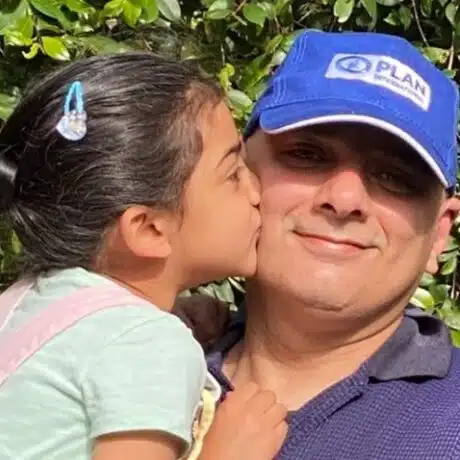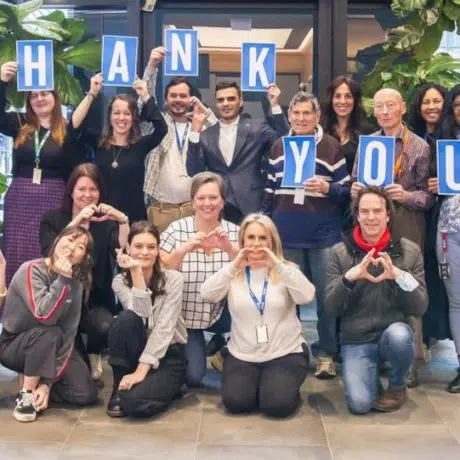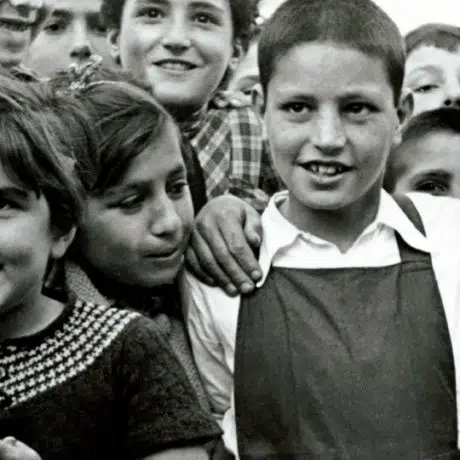News and Stories - Sponsorship - 2 August 2021
Supporter Appreciation Week

Our dream is of a world where every girl can access equal opportunities, and where all children can thrive. A world where children can go to school, live free of violence, and unleash their full potential.
Whether you choose to donate, advocate, fundraise, volunteer or even just share our work with friends and family, you are amplifying girls’ and children’s voices, and helping to make this dream a reality.
Keeping this dream alive amid the difficulties of the COVID-19 pandemic has been a challenge, but again and again our supporters have shown us how passionate they are about working towards our vision for a more equal world.
We are so grateful for each and every one of you, and we could not do the work we do without you. So, to say thank you, we‘re celebrating Supporter Appreciation Week by sharing the stories of four amazing supporters we’ve gotten to know better this year. Meet Monita, Ziyin, Reg and Lucinda.
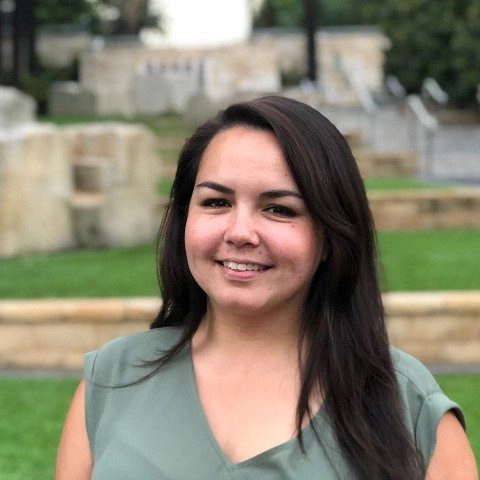
Monita Lyman
Monita Lyman is a mechanical engineer.
Working in a male-dominated field, she realises how privileged she was to be able to pursue a career in STEM, and feels a sense of responsibility to support and create opportunities for girls and women in other countries too.
What do you/did you do for a living?
I’m a mechanical engineer and currently manage a team of engineers that deliver capital and continuous improvement projects for a company that innovates and manufactures non-woven products
How did you first cross paths with Plan International Australia?
I was in the Sydney CBD and decided to sit on a bench whilst figuring out the complex train system. A young woman sat next to me and we struck up a conversation whilst she was taking a break from her job, which is spreading awareness about Plan International. I didn’t realise that Plan was so focused on equality for girls, which is something I am passionate about, and signed up immediately.
Why are girls’ rights so important to you?
When I look at the world around me, I recognise how privileged I am to have grown up in Australia, in particular my ability to study STEM and pursue my goals in a field traditionally dominated by men.
Women and girls continue to be discriminated against and disadvantaged globally and I think it’s my responsibility to support and elevate women and girls however I can. In the past I have volunteered with groups like Women in Engineering, or participated in programs which speak to high school girls about STEM careers, but I wanted to do more to support women and girls outside of my own communities.
You have been supporting children through Plan International since 2019 as a regular giver. And this year you became one of our pioneer Equality Leaders. What led you to decide to join this initiative and support Plan in this way?
The pandemic has meant I can no longer travel or have adventures like I used to, so I had a little extra in my budget. When Jose from Plan International called me to tell me about the program, I knew it was would be a good use of that money.
What is it that you’d like to see changed in the world and what do you hope to achieve through supporting Plan International’s work into the future?
I strongly believe that someone’s gender or gender identity should never have a negative impact on their lives. Education is key to changing opportunity and improving lives, particularly for girls, and even works towards decreasing things like child marriage. Plan International is focused on providing education and opportunity to more and more girls globally, and that will impact every generation from now on.
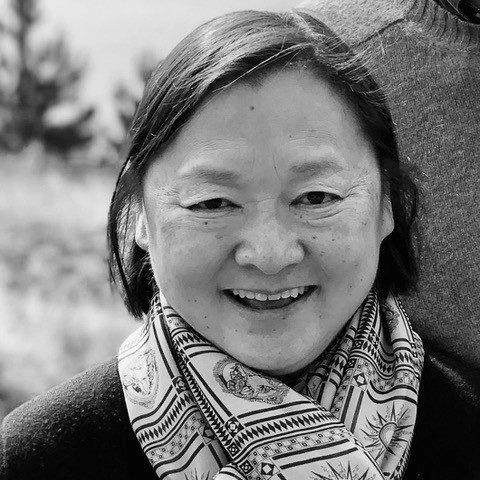
Ziyin Wang Gantner
A producer for theatre, film and television, Ziyin Wang Gantner has been supporting Plan International Australia for 26 years of the 36 years she has lived in Australia.
Education runs in Ziyin’s blood – her grandfather was a professor in charge of education for two provinces in China during WWII, and together, he and her grandmother started a school to educate children. It is this history, and passion for equality that led Ziyin to become involved with Plan International Australia.
Why is girls’ education so important to you?
I was from a family where education is essential for generations, does not matter if you are a boy or girl, you will always be educated. Education helps to broaden our perceptive of the world and enable us as to do better in life. My younger sister and I, we have been brought up, through education, to believe [we are] no different from men, so we could do anything we like. We can study and we are educated so I believe that it should be the same for every girl in the world.
Every woman should be educated, especially women from disadvantaged countries and communities. Education for these women is even more important, because education would help them to realise their own true value and to understand that they are equal to men. I think that education can empower to women so that is why it is important.
How did you first cross paths with Plan International Australia?
After my postgraduate studies, I started working at SBS television. That was 1988. The year after that, I decided I should study more, so I went to the University of Melbourne and enrolled in English literature and classical studies. One of the lecturers was talking about charity work and ways you can help other people, and that how I came across Plan International Australia.
At the time, for very little money, you could support children from another side of the world and give them a chance to be educated. I thought this was very much close to my heart. I had just started working and was still basically a student, so I didn’t have very much money but I thought, you know, I can help a kid from the other side of the world, so it’s worth doing that.
You have been supporting children through Plan International. What led you to support Plan in this way?
We often like to think about how many troubles in this world and there are many difficulties at the moment. In my view I think this imperfect world has lots to do with inequality.
We like to believe Australia is an equal society and allows a good life for everyone but the reality is far from being perfect. Compare, however, many countries where are children are just trying to survive every day, survival is their basic need, we would have to say how lucky we are to be living in Australia.
We are unfortunately living in a world still full of injustices. So I like organisations such as Plan International Australia — with a group of people are trying to help to reduce inequality in this world everyday. We may not be able change the world in a short time, but we can make it change for better a bit by bit. More children are educated and are given opportunities to be educated and our world would be a better place. This is why I support Plan International Australia.
Do you have any memorable moments from your time supporting Plan International Australia?
I used to love it when we received reports from children we supported and letters from kids.
I kept many letters that I received from children in different countries over 25 years. My favourite was a letter from a boy in Ecuador who told me about a most exciting day in their village when they had electricity for the first time. I also kept letter from a little boy of 6 years old from Bangladesh with just a handprint because he wasn’t able to write then. All those things are very memorable.
There was a girl from Ethiopia I supported. The girl [wrote] telling me she was 16 and finished school. I got the letter to thank me because she no longer needs my support. All those kids are grown up, they have their own children, and if my little humble support can make them believe they can give education to their children, that will be very important.
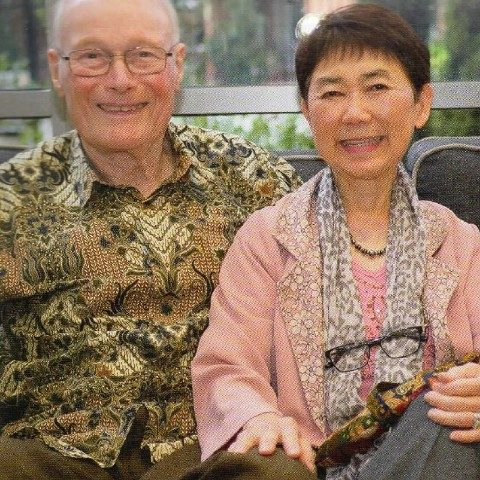
Reg and Lucinda Clark
Reg and Lucinda Clark have been supporting Plan International for more than 40 years, and together with likeminded friends in the Asian Australia Families Association, they’ve sponsored 60 children in 17 countries.
Reg was born in the UK and was called for National Service in the late 1950s. He and Lucy met while he was serving in Malaysia, and the couple eventually decided to settled with their young family in Adelaide, after visiting Australia for a holiday.
It was there that, along with friends and colleagues, they were core members of not one but two groups in support of Plan International Australia. One was the Asian Australian Families Association – a club formed to get to know other families in Adelaide with similar cultural backgrounds to pass on their heritage to their children.
How did you first cross paths with Plan International Australia?
My connection with Plan International Australia started through membership of the Asian Australian Families Association, which was founded in 1971 by six families of mixed marriages to get to know other families in Adelaide with similar cultural backgrounds and to pass on their heritage to their children. The club was special because it was so diverse.
Many of our annual events, such as the Asian Ball, Chinese New Year celebrations and Steamboat lunches, raised funds which were intended for setting up a clubhouse. But, after several years we realised that the club didn’t need its own premises, so the committee appointed a Vice President to search for a suitable cause to support. Our Vice President Carla looked at a number of charitable groups and chose Foster Parents Plan (now Plan International). It suited our group because we had members of diverse ethnic and religious heritage.
We sponsored our first child in Indonesia. My wife and I understood the situation over there – we wanted children to have a chance for some education. It gave the club a new focus. Sponsorship even continued after the Association had ceased to exist in 1986.
You have been supporting children through Plan International for well over 40 years now. How else have you chosen to support our programs?
I’m chairman of a workplace fundraising group. Since I retired from the Department in 1994, many new members joined and others retired, but we are still going!
The group was formed after a suggestion made at a staff meeting in September 1980. We started with 24 members. We each donated 50c per pay packet fortnightly. [The first child we sponsored] was Ansyar in Indonesia. With a further 14 members in May 1981 we were able to sponsor another child, Ramiro, in Bolivia. Since 1980, we have sponsored 60 different children in 17 countries.
As our Group continued to grow we used spare funds to support various community projects in addition to our regular monthly payments. These have included wells, school and clinic building, schoolbooks and house repairs after a typhoon. We also made a donation to fund the issue of birth certificates. Recent appeals have focused on education for girls and training for parents and community members. One of the interesting aspects of sponsoring children in different countries is the wealth of information provided by Plan International through country profiles, project and community progress reports.
Why do you and the others group members like sponsoring children?
Our members are able to follow the progress of the children and their families, as we are long-term sponsors.
When a family moves away, ceases to participate or reaches self-sufficiency, Plan International writes to us explaining the situation and suggesting a new child for sponsorship, usually in the same country. Sometimes it is good news, when a village becomes self-supporting and Plan moves out of the district, their job well done. Since the local community has been involved, the level of education, skills and standard of living has improved, and the benefit of Plan Internationals’s work continues long after they have moved on.
After our latest donation, we have raised a total of $178,088 over the past 40 years. It is gratifying to know that we have been able to help so many families and communities around the world.



